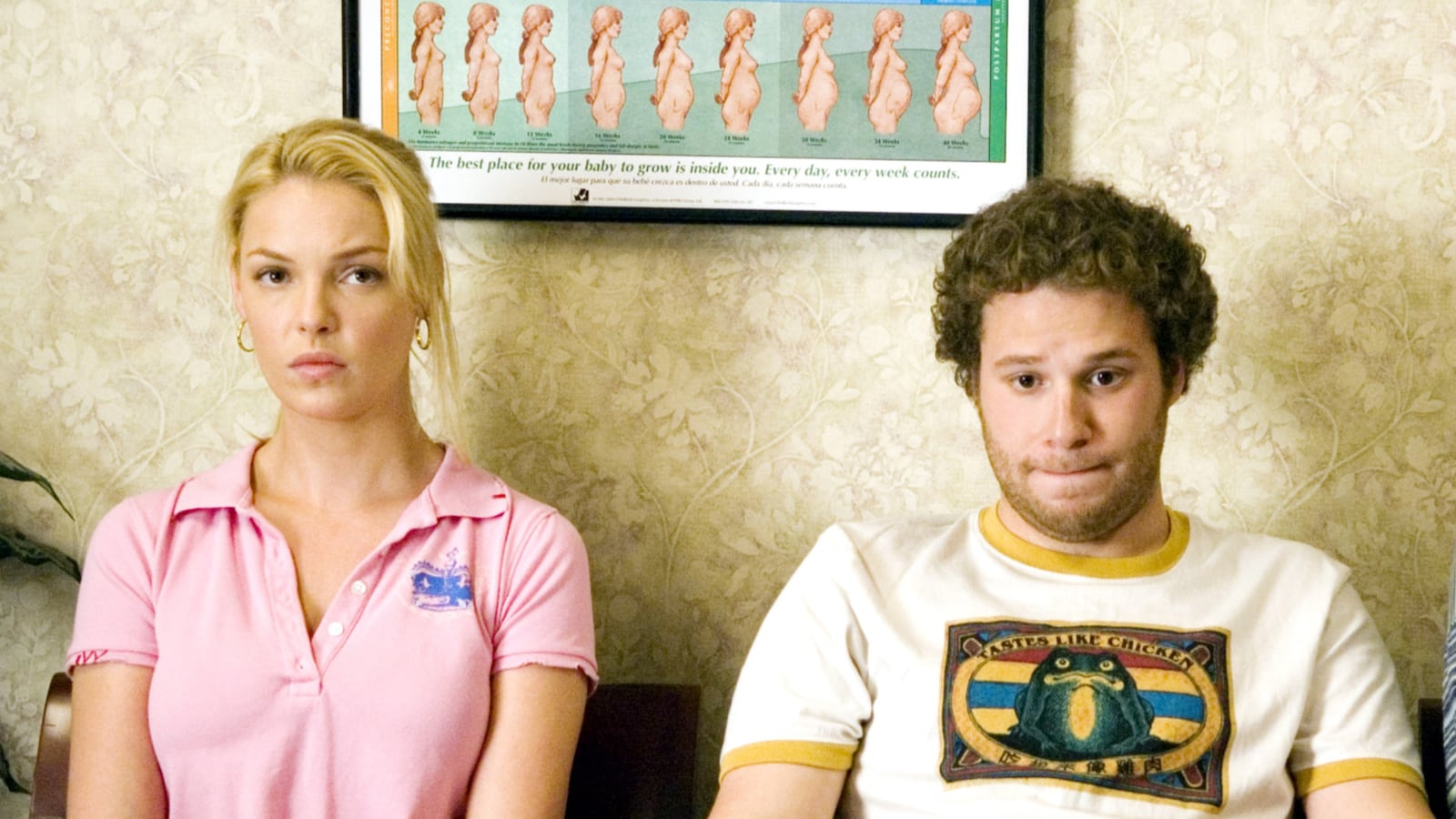
“In your twenties, you think you are just going to live forever,” said 35-year-old Jonathan Yevin, owner of the Brooklyn-based landscape company M.U.D. “But then you get to a point where you see an old dad and you think, ‘I’m going to be that guy.’ That’s what a lot of my angst stems from,” said Yevin, who is not married but has a girlfriend.
Call it ‘mangst” or “manxiety.” Either one describes the bouts of anxiety single guys in their thirties feel about their marital status. Like its feminine counterpart, manxiety stems, in large part, from doing life math. It sounds like this: “If I met the girl today, I’d be 45 when my son or daughter goes to kindergarten.” Now, as it turns out, men are fretting about their closing window to meet someone and have kids.
Circa 2014, there are an unprecedented number of single, educated men in their thirties—the medium age for a first marriage is as high as 32 in the District of Columbia, trailed by 30 in New York, New Jersey, Rhode Island, and Massachusetts, according to census data. And some of them are finding that being single at 34 is not as much as fun as it was at 27, bringing about an existential crisis that, in many ways, mirrors the fears that have been exhaustively chronicled about single women in legions of books and television shows. Men, too, are concerned about the lack of options as they get older, falling behind their peer group and, now, their biological clock, brought on by a rash of new research and attention to the health risks of older fatherhood.
“I see the vast majority of my single guy friends wishing they weren’t,” said Ben Lerer, 32, founder of Thrillist Media Group, an e-commerce site focused on young men. “I think it’s just as acute as the female angst about being single,” he said.
Lerer points to Exhibit A: his best-looking guy friend, who is 29 and “slaying it” in the dating world. “He can’t avoid getting laid when he goes out, but behind closed doors it’s a different story. He is desperately looking for someone to love, a girlfriend. He is so fearful of being alone,” said Lerer, who tied the knot at 28.
Mangst sets in, according to Lerer, when all their other male friends get married. “It’s not just then that they don’t have a girlfriend, they don’t have any guys. They lose that camaraderie. Being single when your friends are single is amazing, but it’s no fun to go out alone.”
“Men when they are 28 or 30, in that pre-adulthood stage, have less consciousness that their life is in a temporary arrangement,” said Kay Hymowitz, author of Manning Up: How the Rise of Women Has Turned Men into Boys.
But it’s not only about losing all their bros to matrimony and having no one to hit the bars with on Saturday night; marriage and parenthood, despite clichés of the commitment-phobic bachelor, are important life goals for men, particularly once they reach their mid-thirties.
The share of middle-age to older men—those over 35—who say that a successful marriage is one of the most important things in their life has increased nine percentage points since 1997 and is nearly equal (36 percent) to women in that demographic, according to 2012 research from Pew Research Center.
And something seems to shift at 35 for men—only 29 percent of men in the 18-to-34 group say a successful marriage is one of the most important things, which has dropped off from 35 percent since 1997, also according to Pew.
As people get married later these days, perhaps 35 for men is what 30 is for women, a personal reckoning that puts their desire to have a family on the front-burner? Close to half (47 percent) of young men say that being a good parent is the most important thing in their life, up from 39 percent in 1997. And, presumably, parenthood is linked to marriage for most of these men.
“All the surveys suggest that people, men and women, want a family life. And who wants to be alone, for God’s sake?” said Hymowitz, a fellow at the Manhattan Institute, a New York-based policy institute.
So what happens when this new generation of men finds itself alone after 35?
Some are taking concrete steps to take control of their waning youth. At 42, Dan Crane, a Los Angeles-based writer, froze his sperm, an experience he chronicled in The New York Times. “I think the problem for me was that up until a few years ago, we all just assumed that men were off the hook for these problems and we could all just keep pretending we were in our twenties until the right girl came along and we could have a kid in our mid-forties, but studies have suggested that’s not the case, which was the impetus for freezing my sperm and for being slightly panicked,” said Crane, now 43, who divorced recently and is childless. The research Crane was referring to has linked older fathers to schizophrenia and autism in children. Also, sperm quality declines with age, making conception more difficult.
Many say studies about older fatherhood have given them pause, but not enough to freeze their sperm. “There is an appeal to be a younger, active dad when you see how crazy your friends’ kids are,” said Mike, a 33-year-old New York-based entrepreneur, who asked that his first name only be used for professional reasons. Mike says his manxiety flares up most acutely when he is thinking that he is the last single guy at the party, a worry that’s allayed when he looks at friends who are 40-something and single. “At least I’m not that guy,” he said.
Mike believes one of the causes of the ambient anxiety men in their thirties feel about being a single guy is exacerbated by online dating tools, such as Tinder and Hinge, which make age a constant part of your profile. “Ten years ago, you could lie about your age if you met someone at a bar, now these dating sites have reduced people to data, with your age a constant and flashing indicator. Men are becoming more self-conscious about it [their age],” Mike told me.
Part of the mangst is also work-related. “Men are delaying marriage and settling down because they want to be set in their careers,” said Sonya Rhodes, author of The Alpha Woman: How Today’s Strong Women can find Love and Happiness Without Settling. “Young men probably can’t see their career path as clearly as their father who worked with the same law firm for his whole life.”
In the interim, as many of these educated young men lead a peripatetic lifestyle and switch careers, sometimes into their thirties, they find themselves unmoored to a city, job, or spouse. Some of this the transience of the early adulthood years, while fun and exhilarating, also contributes to the unease of hitting your mid-thirties without a spouse.
“This is the first time, at 35, I’ve decided I want to stay in one place for the foreseeable future,” said Charles, a policy analyst in Washington, D.C., who asked that his first name only be used for fear of never going on another date again. Charles says the general instability of his job and life is one contributing factor to his angst, which has been on a slow boil since his mid-twenties when all of his friends got married. “I’ve sort of been freaking out since. Most of my friends’ kids will be in college by the time I become a father,” he said. “That’s the disturbing part: when I work backwards, ‘I’m like, Oh shit, I don’t want a kid in high school when I’m in my sixties.’”
Then there are also the fears, Charles says, about the changing dynamics of dating in one’s mid-thirties. First is the worry that everyone who is left on the dating market is damaged goods. But worse is the anxiety surrounding the additional pressure on a relationship in the early going. He no longer has the luxury, he says, to date someone for five years before tying the knot. In fact, a few dates is usually all he will stomach with someone he’s not really into. “The fun of experimentation gets replaced by an impatience for the end result—‘Will this work out?’” Charles confided.
Is freezing your sperm the solution? Crane, for one, says he was surprised that more young men didn’t reach out to him after his story ran on the cover of the Sunday Styles section. “I wish I had done it in my twenties,” he admits.
At least for now, Crane seems to be a bit of an outlier, even though one fertility doctor told Crane that he’s seen an uptick of men freezing their sperm in places like San Francisco. That might be because the disquiet and foreboding feelings single men in their thirties (and forties) have about their future as husbands and father is less acute than their female counterparts. For one thing, men, typically, have more options as they get older. “I can date someone who is 25 but also someone who is in her forties,” Yevin points out. (Thirty-five-year-old women don’t brag about having the same range.) And the female biological clock does tick faster—and, for that matter, comes with a cutoff that men don’t face.
Still, even if men, ostensibly, have more time and options than women, that doesn’t make dating in one’s thirties look appealing to those on the other side. “I know I would not be a good single person,” Lerer conceded. “I would wallow in my loneliness.”






